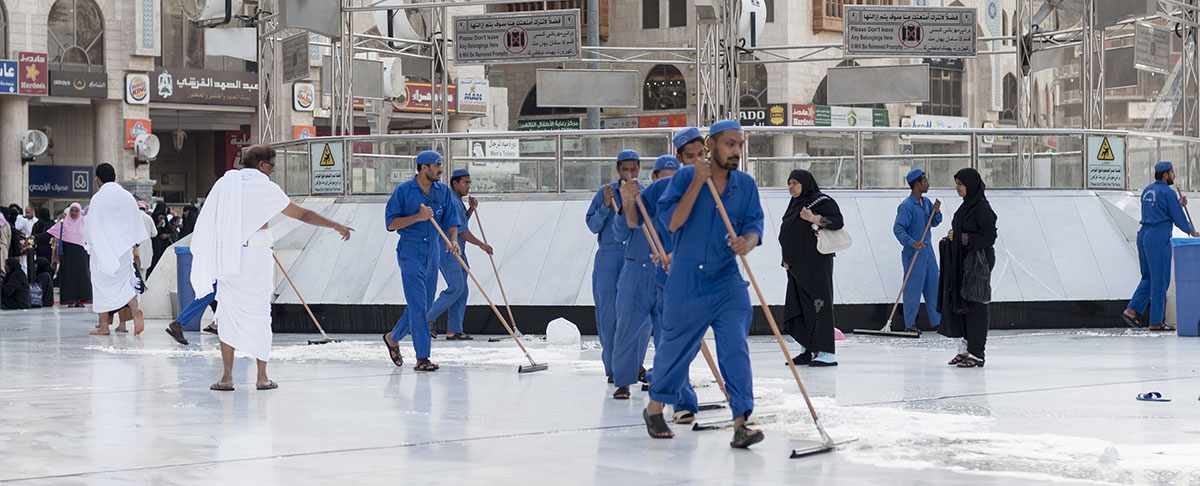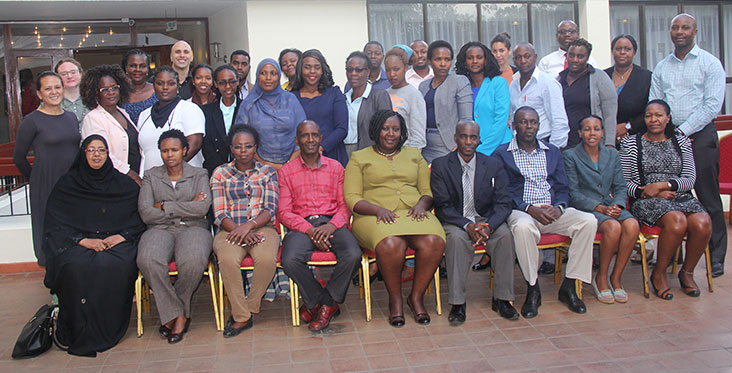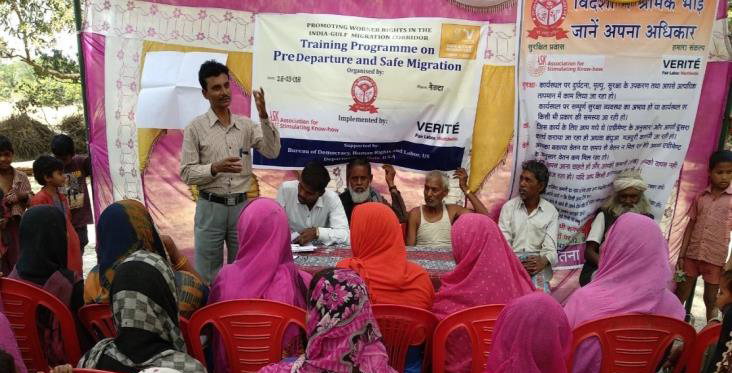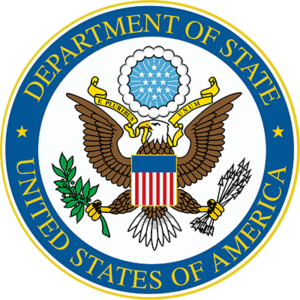Combating Forced Labor Risks During Recruitment
Verité Work Promoting Safe Labor Migration
Since 1995, Verité has promoted safe and fair labor migration in various international recruitment corridors. Through generous funding by the United States Department of State Bureau of Democracy, Human Rights, and Labor (DRL), Verité has implemented two projects focused on reducing labor exploitation risks for low-wage workers migrating to the Gulf States for work: East Africa to the Gulf States and South Asia to the Gulf States.
Verité’s approach to safe migration and responsible recruitment is comprehensive, tailored to each recruitment corridor, and specialized based on Verité’s wealth of experience.
-
Our projects engage stakeholders in both the sending and receiving countries, such as national and state government officials, private recruitment agents, employers, international NGOs, and most importantly, migrant workers.
-
Verité uses a risk mapping approach informed by on-the-ground research in recruitment corridors to develop evidence-based and targeted interventions. This involves interviews with prospective and returned migrant workers, which help Verité identify key risks and potential solutions.
-
Verité has a deep understanding of the labor market dynamics which drive ethical recruitment. This industry knowledge promotes practical and substantive engagement with labor recruitment agencies, such as emphasizing business incentives to the private sector and labor recruitment agencies.

Promoting Ethical Recruitment of Foreign Workers in Gulf Cooperations Council Countries
Abuse of migrant workers in the Gulf States and Jordan has been well-documented by civil society, academics, and the media. In many Gulf States, foreign workers comprise over 90 percent of the private sector workforce, with Indian and Kenyan migrants representing a significant portion of these workers.
The forced labor of these migrant workers, especially in construction and domestic work, has garnered immense international attention. Exorbitant recruitment fees and high interest loans, generally originating in workers’ home countries, make migrants highly vulnerable to deception, leading to debt bondage and broader labor abuses. This vulnerability is exacerbated by legal and regulatory restrictions embedded in destination country legal systems. COVID-19 has also worsened the situation of many migrants by enabling significant discrimination and human rights abuses against low-wage migrant workers in Gulf States.
My passport was seized, and I worked for no less than 12 hours a day —washing clothes, putting them out to dry, carrying and delivering laundry. My sponsor told me, ‘I won’t give you any food if you don’t work as long as I tell you to.’ The employer cut my salary often for rubbish reasons like talking on the phone, not doing the work on time, for medical treatment. Where do I complain in the embassy? I have heard the embassy is useless and that employers punish workers for approaching the embassy.
The agency took my passport the moment I arrived in Dubai. It always keeps me worried [because] my employer can control whether I can leave, and when.
It has been well documented that foreign workers recruited to low-wage jobs in Gulf countries are at risk of forced labor. While much attention has been focused on the exploitation that many of these workers face on the jobsite, it is important to recognize that workers’ vulnerability to indicators of forced labor begins during the recruitment process, before they have left their home country. For example, fees paid to labor agents can increase a worker’s vulnerability to:
- debt bondage or coercion;
- taking a foreign job based on false or deceptive information received about the terms and conditions, which can mean that a worker is unable to freely consent to the job; and
- transiting to the country of work with incorrect travel documents such as a tourist visa instead of an employment visa, which can expose workers to manipulation, such as the withholding of wages or threats of deportation based on the worker’s undocumented status.
I was forced to wash utensils, sweep, mop, pick up and clean the garbage for 12 to 14 hours every day. They abused me, beat me up because I refused to work overtime.
The agent in Nairobi promised me a job as a construction site manager. But when I arrived in Qatar I was told I would be a construction worker, a helper doing very basic tasks. I paid a lot of money to find a job in Qatar. Had the agent been honest with me, I would never have come here.
The job here is nothing like what was promised, the pay is low and my hours are very long. I only got a few hours of overtime pay, even if I work three or four extra hours.
Promoting Ethical Recruitment to Combat Forced Labor of East African Migrant Workers

In Kenya, Verité’s project focuses on promoting safe and fair labor migration from Kenya to the Gulf States through a strategy centered on the promotion of ethical recruitment and policy reform. The project is designed to increase capacities of government, private sector employers, recruitment industry agencies, and civil society in both the sending and destination countries, with the goal of building a robust structure to promote ethical labor recruitment and worker wellbeing in alignment with international standards.
Learn more >>
Combating Forced Labor with Ethical Recruitment Guidance for Indian Migrant Workers

For India-Gulf labor migration corridors, the project centers around building capacities of civil society and other key actors to provide workers with information and guidance to navigate the risks of labor migration while focusing on the worker’s goal of attaining improved livelihood through foreign employment outside of India. In addition, the project seeks to leverage ICT tools to provide migrants with access to credible information about safe migration and resources through mobile phone applications. Verité is proud to be partnering with Free the Slaves, Lawyers Without Borders, and Fifty Eight – developers of the Just Good Work mobile phone application.
Learn more >>
These projects were made possible through the generous support of the United States Department of State Bureau of Democracy Human Rights and Labor. The opinions expressed herein are those of the author(s) and do not necessarily reflect the views of the United States Department of State.

